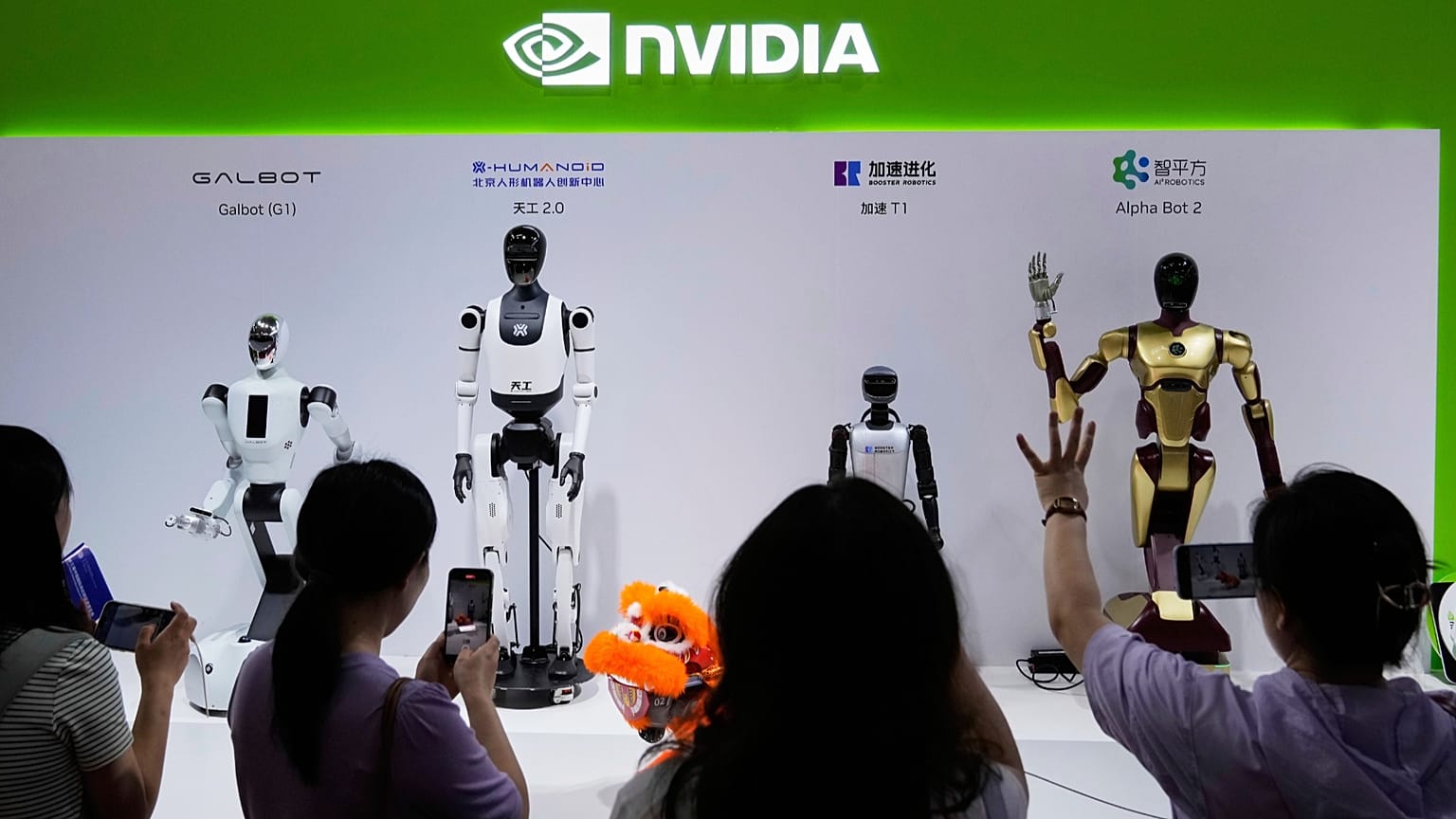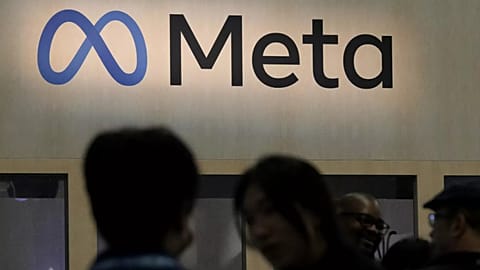A report that Meta may shift billions in AI spending towards Google’s custom chips sent Nvidia shares lower, signalling early signs of a potential shake-up in the company’s near-monopoly of the AI hardware market.
Nvidia shares dipped in pre-market trading on the NASDAQ on Tuesday after widespread reports that Meta, the company behind Facebook and Instagram, is in talks to spend billions on Google’s in-house AI chips, known as tensor processing units (TPUs).
 ADVERTISEMENT
ADVERTISEMENT
 ADVERTISEMENT
ADVERTISEMENT
Nvidia fell almost 4% to around $175.44 (€152.20), down from its earlier-year highs of up to $212 (€183.76) in late October.
Trading was heavy in the after-hours session, with more than 250 million shares changing hands.
Nvidia spent most of this year being heralded as the winner of the AI race because its chips, especially the H100 GPU, became the essential hardware powering nearly every major AI model. That gave the company a near-monopoly on the market while also turning it into one of the world’s most valuable firms.
But Nvidia's chips are general-purpose GPUs, originally built for graphics and then later repurposed for AI, while Google’s TPUs are specialised processors designed from the get-go almost exclusively for machine-learning tasks, making them faster and more efficient for certain types of AI work.
The market movement could suggest that while Nvidia's experience in chipmaking granted them a lion's share of initial investor interest, now the world’s largest buyers of artificial intelligence hardware are weighing alternatives that are specifically tailored to AI. Such a development could have long-term implications for the trillion-dollar chipmaker.
Nvidia's chips are famous for their exceptional performance in terms of computer graphics rendering, gaming, video processing and 3D modelling.
According to a report from business outlet The Information, Meta is considering deploying Google’s TPUs in its data centres from 2027 and may also rent TPU capacity through Google Cloud as early as next year.
Google's TPUs are not general-purpose processors and underperform on tasks outside of machine-learning or AI-related tasks, meaning they can't replace CPUs or GPUs for ordinary computing jobs. The share movements therefore suggest that the chips that have long powered our laptops and desktops have become less of a priority for investors.
The end of a monopoly?
At the heart of the share price drop is the prospect of a challenge to Nvidia’s near-monopoly on AI accelerators. Market analysts estimate Nvidia currently holds between 80% and 90% of the market — some even going up to 95% — with its H100 and H200 GPUs forming the backbone of global AI training infrastructure.
Meta alone said it planned to acquire more than 350,000 H100 chips in a company report last year — an enormous commitment that reflects both scale and reliance on a single supplier.
It seems that Nvidia's GPU's aren't going to be cast aside entirely, but everything boils down to scale in the AI race. The price and performance of Nvidia's chips are not as appealing to hyperscalers — companies who are seeking to secure a vast, steady supply of chips as they expand into AI.
If Nvidia fails produce enough GPUs to meet global demand, hyperscalers want to avoid reliance on a single supplier. TPUs give big buyers a second source of chips, reducing supply risk but also giving them pricing leverage.
Even a modest rebalancing of demand from a buyer of Meta’s size could therefore shift sentiment across the sector.
For Google, the market movements support its long-term push to turn TPUs into a commercial product. Originally built more than ten years ago as application-specific integrated circuits (ASICs) for machine-learning tasks and used only within Google, TPUs are now being sold externally.
The deal with Anthropic to provide up to one million TPUs marks a major step and makes them a credible alternative to Nvidia’s GPUs for both the training and application of AI models.

















